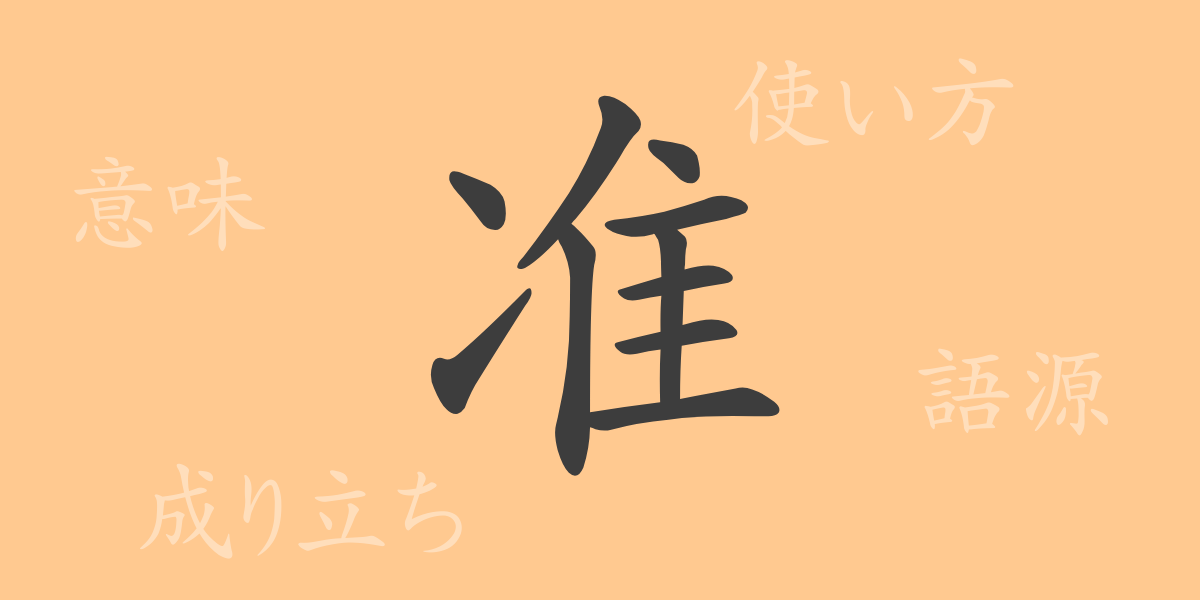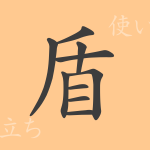There are numerous kanji in the Japanese language, each with its own unique history and meaning. The kanji “准(じゅん, jun)” is not commonly used in everyday life, but it plays a crucial role in specific fields such as law and qualifications. In this article, we will delve into the origins, meanings, and uses of the kanji “准(じゅん, jun),” uncovering its significance and appeal.
准の成り立ち(語源)
The kanji “准(じゅん, jun)” has been used in ancient China to indicate norms and standards. It is derived from the character “準(じゅん, jun),” which means standard or criterion. In seal script, the character includes elements representing tools used to level the land, reflecting a cultural effort to maintain order by making the land uniform. This historical background signifies the importance of standards and conformity in ancient practices.
准の意味と用法
The kanji “准(じゅん, jun)” means “to conform to” or “to follow a standard.” It carries the nuance of acting according to a certain criterion or norm. This kanji is frequently used in legal terminology and business contexts to describe something that is not official but closely resembles the official standard. For instance, the term “准教授(じゅんきょうじゅ, junkyouju)” refers to an associate professor, someone who is not a full professor but holds a similar position.
准の読み方・画数・部首
Understanding the readings and structure of the kanji “准(じゅん, jun)” is essential for a deeper comprehension.
- 読み方: 音読みでは「ジュン(jun)」、訓読みでは特にありません。
- 画数: 全部で12画です。
- 部首: 部首は「几(つくえ, tsukue)」です。
准を使った熟語・慣用句・ことわざとその意味
Words and idioms containing “准(じゅん, jun)” express its meaning and usage more richly. Here are a few examples:
- 准教授(じゅんきょうじゅ, junkyouju) – An associate professor, a position that is close to that of a full professor.
- 准看護師(じゅんかんごし, junkangoshi) – A licensed practical nurse, a qualification similar to that of a registered nurse.
- 准備(じゅんび, junbi) – The act of preparing or being prepared.
准についてのまとめ
The kanji “准(じゅん, jun)” signifies adherence to standards or norms and plays a significant role in specialized fields. Knowledge of its readings, stroke count, and radical aids in understanding Japanese more deeply. Words and idioms containing “准(じゅん, jun)” showcase the nuanced expressions in the language, highlighting its richness. Although not frequently seen in everyday life, “准(じゅん, jun)” holds a solid place in the Japanese lexicon.

























